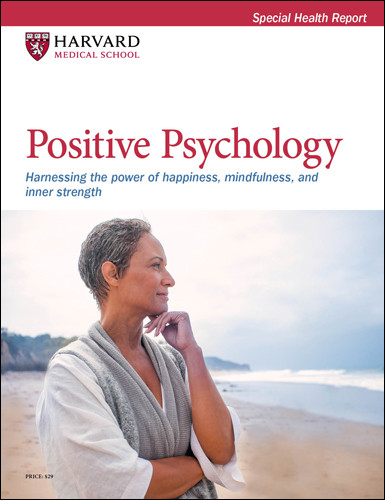Gratitude may help you live longer
Research we're watching
- Reviewed by Toni Golen, MD, Editor in Chief, Harvard Women's Health Watch; Editorial Advisory Board Member, Harvard Health Publishing; Contributor
 Having an attitude of gratitude may extend your years, a new Harvard-led analysis suggests.
Having an attitude of gratitude may extend your years, a new Harvard-led analysis suggests.
For the study, published online July 3, 2024, by JAMA Psychiatry, researchers examined data from more than 49,000 women (average age 79) enrolled in the Nurses' Health Study. In 2016, participants completed a six-item gratitude questionnaire in which they ranked their agreement with statements such as "I have so much in life to be thankful for" and "If I had to list everything I felt grateful for, it would be a very long list." Three years later, the researchers checked participants' medical records to determine who had died, noting total deaths from all causes as well as from specific causes such as cardiovascular disease, cancer, respiratory diseases, neurodegenerative disease, infection, and injury.
Researchers found that participants whose gratitude questionnaire scores at the study's start were in the highest one-third had a 9% lower risk of dying over the following three years than participants who scored in the bottom one-third. Gratitude appeared protective against every specific cause of death studied, and most significantly against cardiovascular disease. The study was observational, meaning it couldn't prove that gratitude makes people live longer — only that an association exists.
Image: © SeventyFour/Getty Images
About the Author

Maureen Salamon, Executive Editor, Harvard Women's Health Watch
About the Reviewer

Toni Golen, MD, Editor in Chief, Harvard Women's Health Watch; Editorial Advisory Board Member, Harvard Health Publishing; Contributor
Disclaimer:
As a service to our readers, Harvard Health Publishing provides access to our library of archived content. Please note the date of last review or update on all articles.
No content on this site, regardless of date, should ever be used as a substitute for direct medical advice from your doctor or other qualified clinician.
















